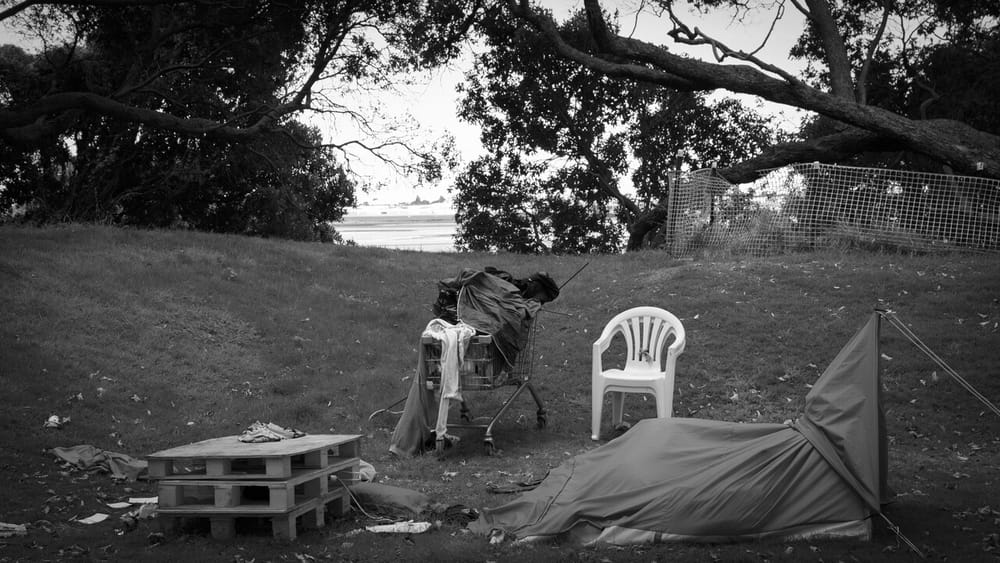
People sometimes imagine that there is a hierarchy of distress that becomes worthy of therapy. They assume that you must be in crisis before you seek support. Then, already distressed, you begin the process of navigating the mental health system. You encounter the various forms of therapy and practitioners; the new language and jargon; questions of affordability, availability and accessibility—revealing a confusing and overwhelming process. If you thought that it would be simple you might conclude, "What's the point?"
There are wiser ways to begin. While there are some undeniable systemic issues, professional mental health support can be an illuminating and life-changing experience. From my practice and the experience of my clients, here are some recommendations to consider when setting out on your therapy journey.
Identify your hopes, expectations and assumptions
If you haven’t been to therapy before, it might be worth reflecting on what you hope, expect or assume about the process. Are you hoping that one session will be enough to address your needs? Do you want facilitated guidance on a particular issue or a more self-directed exploration? Are you looking for someone to validate you or someone to vent to? Do you want to explore issues from the past or to understand recurring patterns in the present?
Therapy is an intentional process that aims to help people navigate their own thoughts, emotions and experiences. You, the client, primarily drive the process toward your hoped-for outcomes. Your clarity—your reasons for entering into a therapeutic space and any expectations you bring—will guide your selection of the right therapist and therapeutic modality, and determine what you hope to gain from the process.
This also gives you an opportunity to recognise and release any stigmas that might hold you back from fully engaging in the process. Attitudes about mental health and therapy are often absorbed from others, or from the media. You might hesitate to tell people that you are starting therapy because you have an unconscious attitude about seeking help. While you don't need to tell anybody if you don't wish to, it can be helpful to become conscious about your own views of therapy and consider whether your attitudes will hinder your own experience.
Commit to the journey
Although it may sound like a cliché, therapy is a journey. It is a facilitated process that may not always have a clear pathway or simple answers. It can be by turns revealing, confronting and affirming. It's good to anticipate that there will be ups and downs. It can be helpful to have someone outside of therapy in whom you can confide, such as a safe friend.
While therapy varies in length, dedicating yourself to the process is more important than the number of sessions you attend. Your dedication helps to make the process meaningful. Much of the therapeutic work is done between, rather than during, each session. To get the most out of the process, allow yourself to be open.
It's likely that you are seeking therapy because there are things that you have not been willing or had the capacity to face on your own. This is your chance. It's natural to feel hesitant or uncomfortable, and being open about this with your therapist will ensure that you can collaboratively decide how to proceed. With the right therapist, surrendering to your discomfort within a safe space will allow you to get the most out of therapy.
Therapy is a journey though it is a cliché.
Find the right therapy
You will need to choose between many different therapeutic modalities. While each modality has some key features, any therapeutic intervention should be tailored to each individual. Below are brief introductions to a few therapeutic modalities:
- Te Whare Tapa Whā is an indigenous mental health model from Te Ao Māori. Developed by Sir Mason Durie, it uses the analogy of a wharenui (house) and focusses on four pillars of wellbeing: hinengaro (thinking), whānau (relationships), wairua (spirituality) and hauora tinana (physical wellbeing). This modality considers the foundation of our wellbeing to be the connection to whenua (land). When there is a sense of balance and harmony between these aspects of our wellbeing, we are replenished and we thrive.
- Te Wheke is an indigenous holistic health model developed by Rangimarie Rose Pere. An octopus symbolises the whānau (family unit) and an individual’s extended connections to others. Each tentacle of the octopus reflects an aspect of wellbeing. In combination they acknowledge the mental, spiritual and physical realms of wellbeing. Te Wheke illustrates health as an inseparable, interwoven web with whānau and extended community.
- Cognitive Behavioural Therapy (CBT) looks at the relationship between thoughts, feelings and behaviours; with the aim of helping you change the way you think (cognitive) and what you do (behaviour). CBT stems from the conviction that thoughts influence each person’s feelings and responses to various situations. Your CBT therapist will help you identify and challenge any unhelpful thinking. CBT can be particularly helpful for depression, anxiety and stress.
- Dialectical Behaviour Therapy (DBT) incorporates aspects of CBT to develop skills that help to regulate emotions. The main components of this therapy are emotional regulation, mindfulness, tolerance for distress, and assertiveness. This is especially helpful for people who are experiencing very strong emotions and wish to develop practical skills and reflect on those emotions.
- Solutions Focussed Therapy (SFT or SFBT) is a brief intervention therapy, usually consisting of up to six sessions. It focuses on the present to identify solutions, rather than diving deeply into the historic sources of current challenges. After settings goals in the first session, the primary objective is to find practical, workable solutions as quickly as possible to reduce the distress you are experiencing. This can be helpful for short-term distress; however, it is not recommended for those with severe mental health issues, trauma or major depression.
- Acceptance and Commitment Therapy (ACT) focuses on supporting you to embrace your challenging emotions and experiences, rather than resisting or avoiding them. Avoiding problems distances you from possible solutions. By facing issues directly, ACT promotes acceptance and commitment to psychological flexibility.
- Art therapy utilises creative processes to explore and communicate issues, thoughts and feelings which may be difficult to articulate in words. It can include drawing, painting, photography and modelling, and it can be used with individuals and groups of all ages. It is important to note that while creative processes can be therapeutic for many people (especially for children), art therapists are psychological therapists who have specific training in psychological interventions which use creativity as a medium of expression. Art therapists should belong to a professional body and comply with a code of ethics, like any other registered therapist.
This is a short sample of modalities, some of which will not be culturally or contextually responsive to some communities. Many therapeutic modalities are founded in Eurocentric and individualist ideologies and are part of mainstream mental health spaces. Indigenous forms of healing are being practised by various practitioners, and there are therapists who practise from collectivist and holistic frameworks. This points to the importance of doing some research to find an approach that will be relevant for you.
Many therapeutic interventions are collaborative and voluntary. In situations of significant risk where mental health is severely compromised, practitioners may be required to comply with the Mental Health (Compulsory Assessment and Treatment) Act 1992 by initiating a compulsory assessment and treatment for a person who is experiencing a mental illness. If you or a family member encounter this situation, it is important for everyone involved to be aware of their rights.
Find the right therapist
The therapeutic relationship is a crucial part of every therapeutic process. Across the various modalities of therapy, most therapy is rational: it relies on safety, comfort and understanding. You cannot know whether you have found the right fit until you engage with your prospective therapist. It will be helpful for you to have some criteria for your evaluation. You might prioritise identity-related qualities in a therapist such as age, gender or ethnicity. Identity-related aspects can be particularly meaningful if you are from a minority community and want to ensure that your therapist is LGBTIQA+ affirming or anti-racist in their approach.
Some therapists offer an initial phone consultation to give you a sense of the therapist’s style, expertise and alignment before you make a commitment. It can be helpful to have some questions ready.
You might want to ask questions like these:
- What therapeutic modalities does this therapist use?
- What professional body are they registered with?
- Have they worked with your particular issue before?
- How long they havehave they been practising?
- Do they offer a sliding scale of fees to accommodate various budgets?
Bear in mind that your therapist may not answer personal questions, to ensure that professional boundaries are maintained.
If mental health and therapy are openly discussed in your social groups, you can ask people for recommendations. This can minimise the time it takes to find a therapist, and it also helps to normalise your own desire to seek therapy. If you are concerned about confidentiality with a therapist who is also seeing others in your group, be assured that any registered therapist will be guided by a code of ethics. The limits of confidentiality should be explained at the first session.
The first session
Once you have made a decision and agreed on the time and date, you’re ready for your first session. Practice varies from therapist to therapist, but you will probably be asked to talk about yourself and your reason for seeking therapy. The therapist may ask structured or open-ended questions to get to know you. It's natural to feel nervous or self-conscious. You might be sharing things that you have not shared with others or spoken about in a long time. If you feel that you are becoming emotional, allow yourself to go with it. This is your space and a good therapist will hold that space for you. Share whatever you feel comfortable saying, acknowledging that a therapist can only work with the information you are willing to offer.
If you notice that the therapist is not the right fit for you, it doesn't mean that anything is wrong or that therapy is not for you. When you get to the end of the session, you can let the therapist know that you think you need something different—that your needs have not been met. Your clarity can open an opportunity to continue working together differently, and might even strengthen your therapeutic relationship. If you prefer, you can also email after the session. You don't need to be worried about offending the therapist with your honesty. The therapist is more likely to appreciate your transparency and feedback. Sometimes a therapist will agree with your perception, and might suggest a different therapist to ensure that you get the most appropriate support.
Create a post-therapy ritual
A variety of emotions can follow therapeutic sessions. Therefore, it is important to create a post-therapy ritual. A ritual gives you some physical, emotional and spiritual space before you move on to the next part of your day. It can also help to regulate your nervous system after particularly heavy sessions.
You might try one of these:
- Take the long way home or to work if time allows
- Do a short breathing exercise—deep belly breathing can be especially helpful
- Go to a nearby cafe and journal about your thoughts and reflections
- Take a walk, go for a swim, have a warm bath, or choose another form orf physical activity that gets you out of your head and into your body
- Treat yourself by buying yourself some flowers, getting a hot drink from your favourite cafe, or doing anything that symbolises blissful self-care
Therapy is not linear. There will be times where you feel like you are making progress and other times that leave you feeling as though you are not. Take time to acknowledge and celebrate yourself for embarking on the therapeutic journey. You are investing in your future self, breaking cycles and contributing to a world that recognises help-seeking as a radical form of self-care and collective care.







